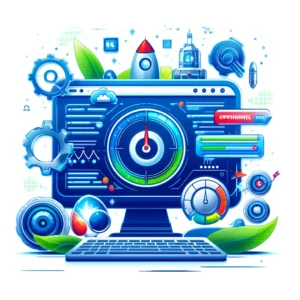In the ever-evolving world of corporate training, organizations are constantly searching for innovative ways to make learning more interesting and immersive. Recognizing the potential of gamification and the advancements in artificial intelligence (AI), corporate training firms are harnessing these technologies to create interactive learning experiences. By combining AI and game design principles, these firms are revolutionizing how employees acquire new skills, expand their knowledge, and foster a culture of continuous learning. In this blog post, we will explore how corporate training firms are developing games using AI to enhance learning and make it more engaging for employees.
The Rise of Gamification in Corporate Training
Gamification involves integrating game elements and mechanics into non-game activities to motivate and engage participants. By tapping into our natural desire for competition, achievement, and progression, gamified learning experiences create an environment that encourages active participation and improves knowledge retention. However, traditional gamification methods often lack personalization and fail to adapt to individual learners’ needs. This is where AI comes into play.
The Role of AI in Game-Based Learning
Artificial intelligence brings adaptability and personalization to game-based learning. Through advanced algorithms, AI can analyze how learners behave, their preferences, and their performance in real-time. This enables the game to adjust its content, challenges, and pace to cater to each individual’s unique strengths and weaknesses. AI can also provide intelligent feedback, identify areas for improvement, and suggest relevant content or resources, thereby enhancing the learning process.
AI-Powered Simulations for Real-World Scenarios
One of the significant advantages of AI-powered games in corporate training is the ability to create simulations that replicate real-world scenarios. By employing AI algorithms, these simulations can dynamically respond to learners’ actions, presenting them with various challenges, decision points, and consequences. This allows employees to practice their skills in a risk-free environment, where they can learn from their mistakes and refine their strategies. Whether it’s a sales negotiation, customer service interaction, or crisis management scenario, AI-powered simulations provide valuable experiential learning opportunities.
Natural Language Processing for Communication Skills
Effective communication skills are crucial in the corporate world. AI-powered games leverage natural language processing (NLP) algorithms to facilitate immersive language and communication training. Learners can engage in conversations with AI-powered virtual characters, practicing their verbal and written communication skills in a realistic setting. NLP algorithms analyze learners’ responses, providing real-time feedback on language usage, tone, and content, while also offering suggestions for improvement. This interactive approach helps employees enhance their communication skills in a comfortable and engaging manner.
Collaborative Learning and Social Engagement
AI-powered games also promote collaborative learning and social engagement among employees. By incorporating multiplayer features and online communities, learners can interact, collaborate, and compete with their colleagues, fostering knowledge sharing and healthy competition. AI algorithms facilitate matchmaking, pairing employees with similar skill levels or learning goals, creating an environment that encourages teamwork and cooperation. Through social interactions and shared learning experiences, employees can build stronger connections and expand their professional networks.
Measuring Progress and Identifying Skill Gaps
AI-powered games provide comprehensive analytics and data insights, enabling organizations to measure learner progress and identify skill gaps effectively. By analyzing gameplay data, AI algorithms generate detailed reports on individual and group performance, highlighting areas where additional training or support may be required. These insights help organizations tailor their training programs, allocate resources efficiently, and track the return on investment in training initiatives.
Conclusion
In a time where employee development and continuous learning are essential for organizational success, corporate training firms are embracing AI-powered games to revolutionize the learning experience. By combining gamification principles with AI technologies like adaptive algorithms, simulations, NLP, and analytics, these firms are creating engaging and immersive learning environments











